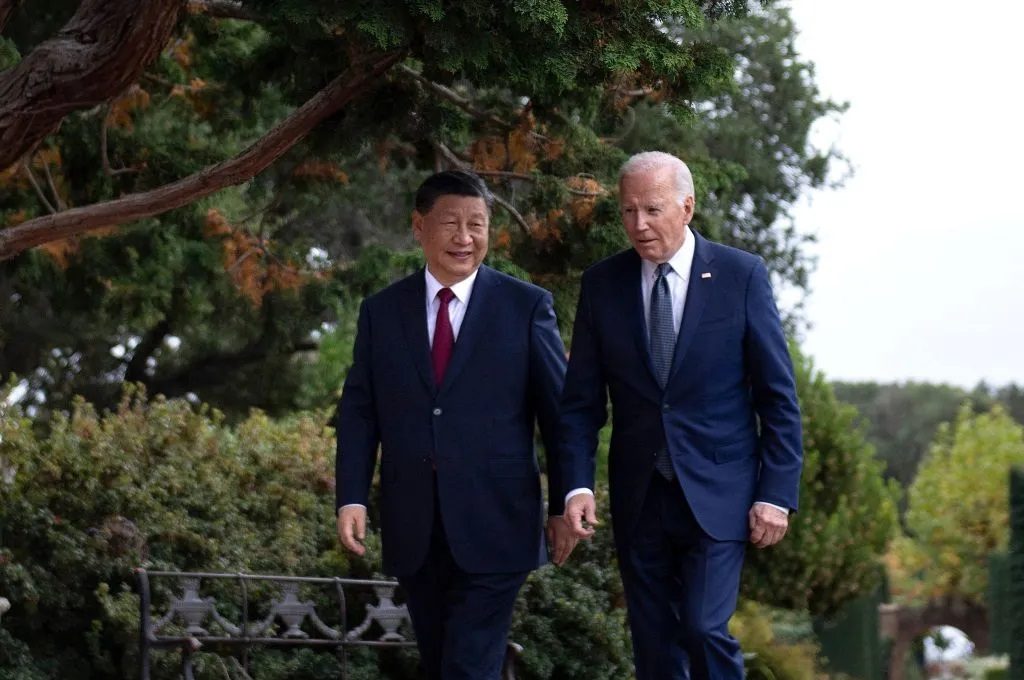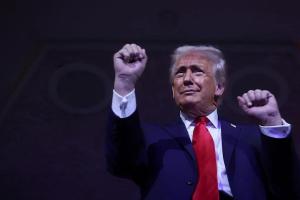The Chinese Communist Party is rarely shy about highlighting America’s chaotic politics. State media and the CCP’s growing army of bots enthusiastically prowl around western social media, inserting themselves in the most difficult of debates, seeking to sow distrust. So why the relative caution about Joe Biden’s withdrawal from the presidential race?
In the run-up to Biden’s decision, Chinese media was full of reports on the near-assassination of Donald Trump and on Biden’s mounting political troubles, but less happy about calls for the president to withdraw. According to the China Digital Times, which monitors Chinese media, censors stepped in and removed a widely shared essay titled “Switch Candidates. Biden Cannot Beat Trump,” possibly because it was a veiled message to Xi Jinping. “The greatest contribution some men can make to their party, country, and people is to surrender power, exit the political stage and head home to hug their grandchildren,” the essay began.
Last week, overseas Chinese dissident websites were spreading rumors that Xi had suffered a heart attack
It could well be that the CCP is still trying to calibrate its response to Biden’s withdrawal, but it does appear to have hit a raw nerve with China’s leaders. Foreign ministry spokesperson Mao Ning said that the “presidential election is an internal affair of the United States.” While the story has trended on Chinese social media, censors have been highly sensitive to terms such as “step down” and “changing of the guard” and any suggestion that they could apply to China’s supreme leader, who has effectively given himself a job for life.
In 2018, Xi altered the Chinese constitution, removing term limits to allow himself a third stint as leader. After the tyranny of Mao Zedong’s rule, Deng Xiaoping adopted a norm of ten years (two five-year terms) for China’s top leader and a more collective form of leadership. Xi swept these aside. He is now seventy-one years old, ten years younger than Biden, but there is now no mechanism for a peaceful succession in China. Those who had been regarded as possible successors have been removed, usually under the guise of fighting corruption. Xi is now surrounded by yes-men.
Last week, overseas Chinese dissident websites were spreading rumors that Xi had suffered a heart attack or another serious health issue on account of his lack of visibility during a key five-yearly party meeting. There is no evidence for this, but it is testament to a febrile atmosphere and also helps explain the party’s tetchiness about discussions of the health of Joe Biden.
The timing is also awkward for Xi, as last week’s key meeting to inject new life into the ailing economy — the third plenum in party-speak — turned into something of a damp squib. The plenum was heavy on platitudes, but with few details of how the party plans to change an economic model that is no longer sustainable. The economic mood has become so dismal that the ministry of state security has declared that gloom is a foreign smear and that “false theories about ‘China’s deterioration’ are being circulated to attack China’s unique socialist system.” The meeting committed itself to ‘high quality development’ and “innovation vitality” to “comprehensibly deepen reform”!and achieve “national rejuvenation on all fronts.”
In reality, the Chinese economy is rudderless and unreformable — and Xi is the biggest obstacle to change. It is a CCP sacrament these days that China has nothing to learn from the West, but if Xi fails to re-boot the economy, expect to see more veiling references to the selflessness of one Joe Biden.
This article was originally published on The Spectator’s UK website.


























Leave a Reply